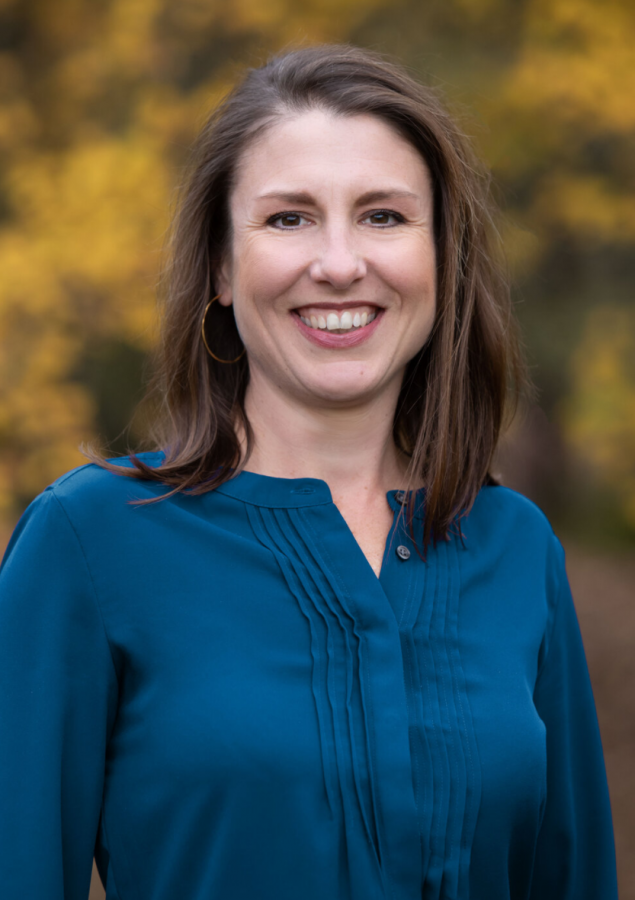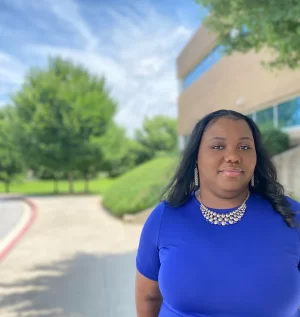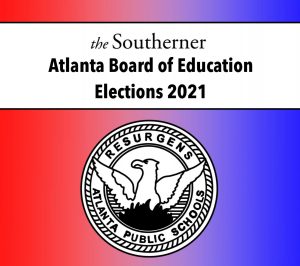1996 Grady alum and APS parent Howard runs for APS BOE District 1 seat
Graduate of the Grady class of 1996, Katie Howard, is running for the District 1 seat on the Atlanta Public Schools Board.
September 10, 2021
Katie Powell Howard, who graduated from Grady High School in 1996, recently announced she was running for the District 1 seat on the Atlanta Board of Education.
The seat is currently occupied by Board member Leslie Grant, who told the Southerner she does not plan to run for reelection. Howard attended kindergarten, middle school, and high school in the Grady cluster. Her two daughters went to Parkside Elementary and currently attend King Middle School in the Jackson cluster.
“I’ve been involved and invested for a long time in the Maynard Jackson cluster,” Howard said. “I’ve just really been involved in getting people in our community to fully support our schools over here and through that, I’ve made a lot of connections and learned a lot about what’s going on in our schools as well as other schools throughout APS…It just seemed like the right time to say, ‘Okay, if I want to be a part of positive change at the board level, [I’ve] got to run.”
English teacher Lisa Willoughby taught Howard when Howard attended Grady. Willoughby said she thinks Howard’s experience with Atlanta Public Schools in two different clusters (the Grady cluster and the Jackson cluster) will give her unique insight as a member of the APS board.
“She’s someone who wants to try to change things and is willing to invest herself and her kids in that process,” Willoughby said. “And I think that’s a good thing. And if she can send that signal to the broader community then all the better because I think, when we have more students [who] want to be part of APS, that makes things better for everybody.”
Howard has worked for the Atlanta City Council as Chief of Staff and Senior Policy Advisor to Councilman J.P. Matzigkeit. She has many connections there that she hopes to use to build stronger partnerships between APS and the City.
“I am very interested in seeing how the City and APS can partner more where appropriate on dealing with some of the systemic underlying factors that are affecting our schools, such as lack of affordable housing, lack of investment in business, small businesses, and community,” Howard said. “We’re making headway there. I think people [are] headed in the right direction, but schools and strong communities, obviously, [are] directly correlated.”
One initiative Howard outlines in her platform is affordable housing for teachers. Aisha Stith, a sociologist and Grady cluster parent, said she thinks it’s a “brilliant idea” to bring interested teachers closer to where they teach because it will have a positive “trickle effect into the school systems”.
District 1 covers the Grady and Jackson cluster as well as parts of the Carver and South Atlanta clusters. Howard recognizes the diverse and varied needs of these schools and says she will support them with an emphasis on equity.
“First and foremost, equity [is key], but that can look different, based on what’s going on with that child so, APS obviously has to dig in and do individualized assessments… particularly post COVID,” Howard said. “We can’t just do a blanket approach to all these schools because they’re different and unique which is beautiful and I’m so excited about the possibility of representing such a diverse district. I think it’s awesome.”
Stith, who is Black, said it’s important to her that the Board’s equity-centered policies explicitly focus on the Black students in APS.
“I am uniquely concerned with how our school system supports Black children,” Stith said. “I think [Howard] talked a lot about diversity, which is really great, but as I see it, there needs to be a direct initiative and it’s productive for all… Don’t be afraid to say, ‘I’m here to figure out how to support communities, Black communities, or African-American communities.’”
Another one of Howard’s main goals is to ensure that there is not only quality education inside schools, but also quality communication about schools. She said in her time being involved with APS, she has seen the way gaps in communication with the community have influenced people’s impression of the districts. She said from her own experience, many parents did not want to send their kids to King Middle School,. However, she worked to bring the community together and shed light on the incredible leadership at the school.
“It wasn’t so much about selling them on the school as much as saying, ‘We need to really work on understanding what’s going on in our schools and not judging them based on perception,’” Howard said. “I know I can help and going directly to people, talking with people, connecting with people and saying, ‘These are all the resources available to you’…. Educators are doing this in the schools… but how the district builds upon that trust, it just adds more and supports educators who I’m sure sometimes feel like they’re not heard [and] their ideas aren’t implemented as much.”
Stith agrees this kind of communication is important, and she thinks this outreach would be a good opportunity to emphasize the rich history many APS schools have.
“Just talk to people about the history… so that parents find value and talk about when the school was thriving and see if that resonates,” Stith said. “I think that’s really smart… If people can feel good about the school that’s in their neighborhood and want to support it, that’s another sort of step forward.”
The past year has seen a lot of discontent within the APS over decisions made about how and when to reopen schools. For Willoughby, having someone on the board who looks out for educators’ perspectives is important.
“The way she talked about being impressed with the educators in the schools where her students are is admirable,” Willoughby said. “I very much hope that she will continue to try to take the perspective of the people involved in educational education directly and not the outside pressures that, sometimes, people are subject to.”
Willoughby said an important aspect of this is the relationship members of the board have with Superintendent Dr. Lisa Herring,
“They need to be more assertive with Dr. Herring and say, ‘You have got to be collaborative; you can’t just say you’re collaborative. You’ve got to be equitable; you can’t just say you want to be equitable,’” Willoughby said.
One of Howard’s goals is to have an open and productive relationship with Herring about the concerns of her constituents.
“It is critical for a board member to share with the Superintendent what they’re hearing is going on and what the feedback [is that] they’re getting, and I’m hoping that I would have an open relationship where I could share that,” Howard said. “There’s just so many things we can do…but at the same time recognizing [what] the superintendent needs.”
Stith thinks it is important to have another board member on the APS board who cares about making the school system more equitable.
“I think another person who is focused on equity, who is focused on diversity and sort of not afraid to say ‘We have low income black communities that really need support,’ I think that’s perfectly fine,” Stith said. “I think that there’s a lot of strength in a true ally.”
Howard said she wants to take this next step in her involvement with APS so she can lift up all APS schools.
“To me, APS represents strength, diversity, beauty [and] Atlanta,” Howard said. “I love all APS schools. I have so much love and respect for each one and the unique history, or culture in those schools, including partnerships and charters. There’s some awesome things going on, so I just want to highlight all that and really build upon it and showcase all of them.”








